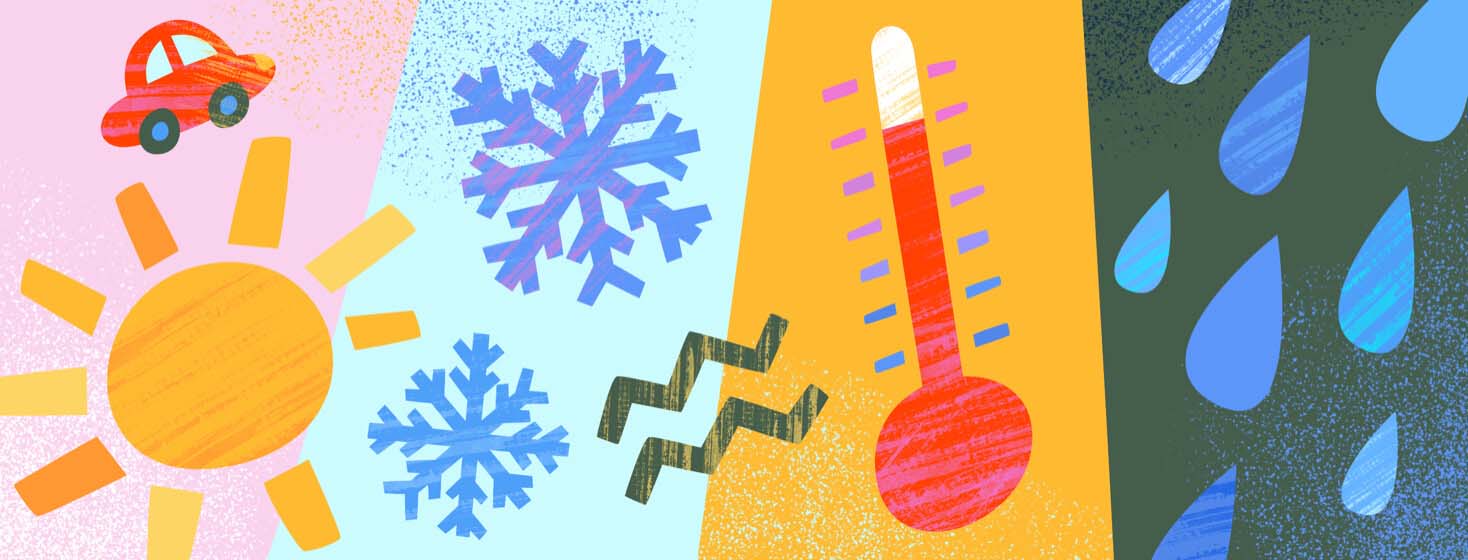Rare Types of Urticaria
Some types of urticaria (hives) are very rare. They may affect only a few thousand – or sometimes a few hundred – people. The triggers for these rare urticarias may be difficult to avoid day to day.
For example, physical urticarias are brought on by conditions outside your body. You can get hives or other symptoms from:1
- Pressure
- Vibration
- Water
- Heat
- Cold
- Sunlight
Aquagenic urticaria
Water can cause some people to break out into hives. Different types of water react with unknown elements in the skin to release histamine and create a rash. Aquagenic urticaria can be triggered by:2
- Freshwater
- Seawater
- Sweat
- Tears
Scientists have discovered fewer than 100 cases of aquagenic urticaria. It is more common in women and girls and tends to start around puberty. It can happen to anyone, but researchers have found several cases within families. This suggests a genetic link.2
Vibratory urticaria
This is a type of physical urticaria. Friction and other repeated physical stimulation cause vibratory urticaria. For example, you may get hives from:1
- Running or jogging
- Rubbing yourself dry with a towel
- Clapping your hands
- Taking a bumpy ride in a car
People with this condition will feel the effects a few minutes after exposure. The effects may last as long as an hour. It is possible to have several flare-ups a day. Experts believe 5 in 1,000 people have vibratory urticaria.1
Heat urticaria
Heat urticaria is another kind of physical urticaria, which happens after exposure to heat. Heat switches on mast cells and releases histamine and other chemicals that promote inflammation. Tiny vessels in the skin then widen, causing a rash, swelling, and irritation.3
People with heat urticaria show symptoms after doing things like:3
- Cooking over a stove
- Dunking their arms or legs into warm water
- Using a hairdryer
- Consuming hot foods and drinks
Heat urticaria mainly affects women between ages 20 and 45. Besides hives, people with this condition may also have:3,4
- Weakness
- Wheezing
- Headache
- Skin discoloration
- Nausea
- Vomiting
- Diarrhea
- Fast heart rate (tachycardia)
Cold urticaria
Like heat, cold can also cause hives. Reactions can range from minor to serious. People living with cold urticaria get hives and swelling if they hold, eat, or drink something cold. Even swimming in cold water could cause a drop in blood pressure, fainting, or shock.5
Other severe reactions include a fast heartbeat and swelling of the arms, legs, and torso. Swelling of the tongue and throat can cause breathing problems.5
Young people tend to have the most common form of this condition, called primary acquired cold urticaria. Secondary acquired cold urticaria is less common. It can be triggered by another health problem, like hepatitis or cancer. In rare cases, a parent can pass cold urticaria to their child.5
Solar urticaria
Sunlight or artificial ultraviolet (UV) light can also trigger hives, a condition called solar urticaria. People with this condition will have a skin reaction to UV or visible light (between 300 and 500 nanometers). This range varies from person to person.6
A painful, swollen, itchy rash appears within minutes of being exposed to sunlight or UV light. The rash can last an hour or more. Skin that is usually covered up will typically react more. But solar urticaria can even happen on skin that is covered with thin or light-colored fabric. Other skin usually exposed to the sun, like your face and hands, may not be affected as much. When the rash affects large parts of your body, this can lead to:7
- Fluid loss
- Dizziness
- Headache
- Nausea
- Vomiting
Solar urticaria is rare. Of all people with urticaria, about half of 1 percent have solar urticaria. Both men and women are affected by the condition. It usually starts in your mid-30s but also happens to babies and older adults.6

Join the conversation